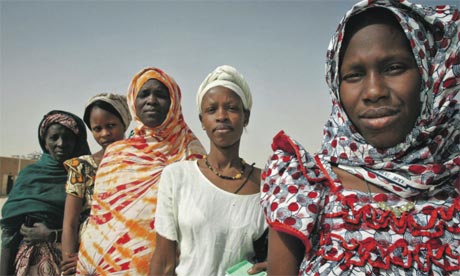Women unite: “Let us not relent and let no man intimidate us and tell us that we are not educated”
Women in Kenema have organised themselves into the Kenema Women in Governance Network seeking to empower themselves socially, economically, educationally and, most importantly, politically.
Drawing from the experiences and successes of their sisters in the Kailahun Women in Governance Network, the women said the time is now for them to take the podium in leadership and decision making in Sierra Leone.
“I believe this is the turning point wherein we have decided to confront the challenges preventing us from sitting side by side with the men in matters of politics and governance,” said Mary Wuyata Karimu, who chaired the launching program at Hotel Albertson, Kenema Town, last week.

Mary is the Chairperson of the Right to Access Information Commission (RAIC) Eastern Region.
“This is the time that the women of Sierra Leone should take the podium in leadership and decision making. Let us not relent and let no man intimidate us and tell us that we are not educated,” she added.
By the launching, Kenema Women in Governance Network is now an affiliate to Kailahun Women In Governance Network, which was formed in 2009. The formation of both women networks was supported by SEND Sierra Leone through funding from Irish Aid under the Women Participation in Governance Project. The Kenema project is specifically called Kenema Women Participation in Governance.
The network draws its membership from all 16 chiefdoms in Kenema District, with the district divided into four zones. Each zone has its executive which reports to the District Executive comprising of seven members. The district executive are elected from the four zones.
“Let me first and foremost, on behalf of our membership, commend the donors and SEND Sierra Leone for the trainings and support throughout the stages of the formation of this network. Our goal is to ensure more women take up political offices; come 2023, we want the numbers to increase remarkably. We know it will not be easy, but we are giving it a good fight,” said Fatmata Dassama, President of the Kenema women network; adding that they have started identifying women for key positions for the next national elections.
The women noted some of the key challenges holding them back, such as reprehensible culture and traditions and what they called pulling-down-syndrome. They also noted that the men in the Eastern region have not been treating women fairly in terms of political empowerment.
To get the men onboard, Dassama revealed that the network has trained about 80 males in the district to help them convince more men to support the political course of women.
Women constitute more than 51% of the population of Sierra Leone, and the Country Director of SEND Sierra Leone, Joseph Ayamga, said this statistics alone should be a source of strength for all women to pursue their dreams.
“If we are all here to talk about the business of women, it means that they are very much important. Women are the only people that add value to life. We are not launching the network to throw a challenge against the men. Rather, we are encouraging men and women to work together. We should give women their rights and remind them about their responsibilities as well. All of us have our rights and responsibilities. Women have different skills same as men and that’s why we should work together,” said Ayamga.
He said any community or home where men and women are working together is better than where they are not and that is what they are trying to promote.
“The progress of women should not diminish the progress of men. We have women that are qualified to be chiefs, heads of political parties and councilors but why are we segregating them because of culture and tradition? We are trying to let you know that any society where women are lagging behind, it will never grow,” said Ayamga, adding that the essence of the women network is to fight for their colleagues to prosper in life by advocating for better social services and protection.
The Resident Minster East, Andrew Fatorma, who also attended the ceremony, said in as much as women want leadership and improvement, they have to change their attitude.
“If you are advocating for men to work closely with you, you also have to support your colleagues when they seek leadership positions. Women in positions now should encourage those that don’t have the opportunity so you will be able to work as a team,” said the Resident Minister.
He continued: “You (women) have to work hard; it is not about coming together but you have to translate this into practical things. You have an assignment to do. It is not about promoting your interest alone. You have to think about helping and assisting those coming after you. I am happy because I have seen faces here that really want to promote the cause of women. We are ready to embrace you but it is your responsibility to push for it to happen.”
Meanwhile, giving the keynote address and formally lauching the network, the Deputy Director of the Ministry of Social Welfare, Gender and Children’s Affairs, Eastern Region, Jeneba Koroma, said every society is made up of weak and strong people and it’s very important for women to be part of governance.
“For governance to be very effective, men and women should always sit at the same table to take decisions because only then, the needs of everyone, including women, will be best met,” she said, adding that when women are in governance they cater for the family, community and the nation at large.
Following the formation of the women governance network in Kailahun, the district elected 12 women as councilors in the 2012 national elections, the highest in the entire country.

